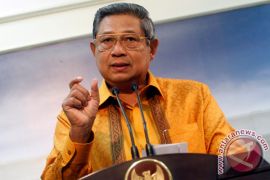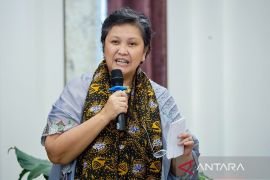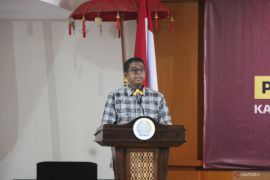Around 13 percent of Indonesian people were still poor, a National Development Planning Board (Bappenas) official said.Jakarta (ANTARA News) - Indonesia needs to speed up its poverty eradication efforts because the number of poor people in the country is still high, a National Development Planning Board (Bappenas) official said.
Bappenas director of cooperative and small and medium businesses empowerment Adhi Putra Alfian in his written statement on Tuesday said around 13 percent of Indonesian people were still poor.
He said the figure indicated that the target of reducing the percentage of poor people to 8-10 percent had yet to be achieved optimally.
According to him, the global crisis that had the potential to increase the number of poor people would likely happen as well in Indonesia.
In an effort to anticipate and overcome it, Adhi said the implementation of the Accelerated and Expanded Indonesian Economic Development Master Plan (MP3E) and the National Plan of Action for Poverty Eradication Program (RAN-PPK) should be accelerated.
Poverty eradication with the "business as usual" approach was no longer acceptable, Adhi said in the statement.
"The implementation of MP3EI is expected to encourage the creation of employment and expansion of employment opportunities to speed up the reduction of the national poverty rate," Adhi said.
He said the government at present was reordering the matrix of RAN-PPK which originally has 14 points into five clusters in order that all activities could be sharper and more specific.
According to him, the government in 2013 would step up various entrepreneurship practices of small and medium businesses (UMK), the UMK access to capital, and UMK production quality.
The government would also encourage the increase of new entrepreneurs, human resources competitiveness, and other motivating factors that could overcome poverty and unemployment.
Meanwhile, the Institute for Development of Economic and Finance (Indef) predicted that Indonesian economic growth in 2011 would reach 6.5 percent or in accordance with 2011 State Budget target, while the economic growth in 2012 was predicted to reach 6.1 - 6.3 percent.
"But the problem is that the achievement is just still limited to figures, and in a real condition unemployment and poverty rate is still high," Indef Director Enny Sri Hartati said.
She said Indef predicted that unemployment rate in 2012 will drop a bit to around 6.3 percent.
The unemployment rate in the past three years showed a downward trend from 8.0 percent in 2009, 7.3 percent in 2010, 6.7 percent in 2011, but the decline did not equal to economic growth achievement over 6.0 percent in 2010 and 2011.
Poverty rate in 2012 is predicted to be at 11.7 percent, while in the past three years it showed a downward trend from 14.2 percent in 2009, 13.3 percent in 2010, and 12.5 percent in 2011.(*)
Editor: Heru Purwanto
Copyright © ANTARA 2011











